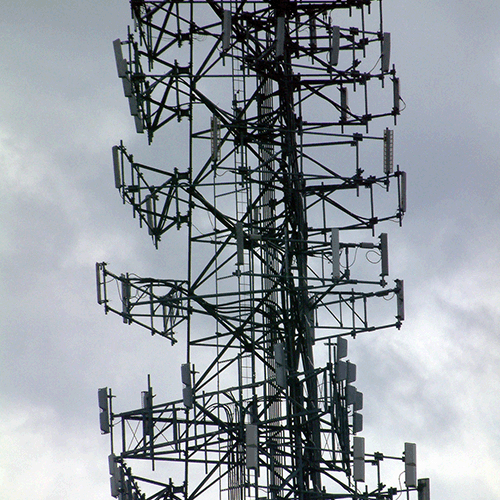T-Mobile South LLC v. City of Roswell: Municipal Denials of Cell Tower Requests

In T-Mobile South LLC v. City of Roswell, 135 S.Ct. 808 (2015), the U.S. Supreme Court held that the federal Telecommunications Act mandates that municipalities provide a written explanation when denying a cell tower application. Moreover, the explanation must be issued essentially contemporaneously with notice of the denial.
The Facts in T-Mobile South LLC v. City of Roswell
The city council (Council) of Roswell, GA held a public hearing to consider T-Mobile South, LLC’s (T-Mobile) application to build a cell phone tower on residential property. In response to concerns about the tower’s impact on the area, the Council unanimously denied the application. Two days later, the City informed T-Mobile by letter that the application had been denied and that minutes from the hearing would be made available. The detailed minutes, explaining the Council’s decision were published 26 days later, which was four days before the deadline for T-Mobile to challenge the denial.
T-Mobile subsequently filed suit, alleging that the Council’s denial was not supported by substantial evidence in the record. The District Court agreed, concluding that the City, by failing to issue a written decision stating its reasons for denying the application, had violated the Telecommunications Act of 1996, which provides that a locality’s denial “shall be in writing and supported by substantial evidence contained in a written record.” The Eleventh Circuit Court of Appeals reversed, finding that the statute’s requirements were satisfied because T-Mobile received the letter and meeting transcript.
The Majority Decision in T-Mobile South LLC v. City of Roswell
By a vote of 6-3, the Court held that Section 332(c)(7)(B)(iii) of the Telecommunications Act requires local governments to provide reasons when they deny applications to build cell phone towers. According to the majority, the Court’s ruling is consistent with the statute’s provisions, which both “preserve and specifically limit traditional state and local government authority.” Justice Sonia Sotomayor wrote the majority opinion, which was joined by Justices Elena Kagan, Stephen G. Breyer, Samuel A. Alito, Jr., Anthony M. Kennedy, and Antonin Scalia.
In reaching its decision, the majority emphasized that it would be difficult for a reviewing court to determine whether a locality’s denial was “supported by substantial evidence contained in a written record,” or whether a locality had “unreasonably discriminate[d] among providers of functionally equivalent services,” or regulated siting “on the basis of the environmental effects of radio frequency emissions,” if localities were not obligated to state their reasons for denial.
The Court further held that while the local government’s written explanation does not have to accompany the initial denial letter, it must be provided in a timely fashion. In addition, municipalities are not required to provide their reasons for denying cell tower applications in the denial notice itself, but may state those reasons “with sufficient clarity in some other written record issued essentially contemporaneously with the denial.”
The Dissent of T-Mobile South LLC v. City of Roswell
Chief Justice Roberts and Justice Ginsburg dissented, with Justice Thomas joining in part. The justices rejected the majority’s timing requirement, arguing that it lacks any textual statutory support. With regard for the majority’s justification that companies need time to decide whether to seek judicial review, the Chief Justice wrote: “This concern might have force if towns routinely made these decisions in secret, closed-door proceedings, or if applicants were unsophisticated actors. But the local zoning board or town council is not the Star Chamber, and a telecommunications company is no babe in the legal woods.”
Previous Articles
SCOTUS Wraps Up Oral Arguments for the Term
by DONALD SCARINCI on May 17, 2022
The U.S. Supreme Court has concluded its oral arguments for the October 2021 Term. The justices hea...
SCOTUS Rules Censure of Elected Board Member Didn’t Violate First Amendment
by DONALD SCARINCI on May 10, 2022
In Houston Community College System v. Wilson, 595 U.S. ____ (2022), the U.S. Supreme Court held th...
Supreme Court Breach Is Not the First Involving Roe v. Wade
by DONALD SCARINCI on
The recent disclosure of Justice Samuel Alito’s decision purporting to overturn Roe v. Wade is ar...
The Amendments
-
Amendment1
- Establishment ClauseFree Exercise Clause
- Freedom of Speech
- Freedoms of Press
- Freedom of Assembly, and Petitition
-
Amendment2
- The Right to Bear Arms
-
Amendment4
- Unreasonable Searches and Seizures
-
Amendment5
- Due Process
- Eminent Domain
- Rights of Criminal Defendants
Preamble to the Bill of Rights
Congress of the United States begun and held at the City of New-York, on Wednesday the fourth of March, one thousand seven hundred and eighty nine.
THE Conventions of a number of the States, having at the time of their adopting the Constitution, expressed a desire, in order to prevent misconstruction or abuse of its powers, that further declaratory and restrictive clauses should be added: And as extending the ground of public confidence in the Government, will best ensure the beneficent ends of its institution.




